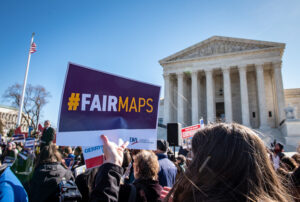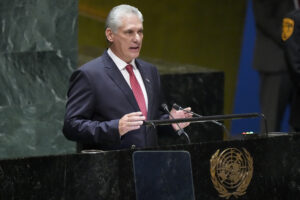Troops Have to Fight for Their Right to Vote
Active-duty military members arguably have more to lose than anyone else in Tuesday's election, but voting can be an obstacle course for servicemen and -women overseas. The Dallas Morning News reports that in 2006 only one-third of the absentee ballots requested by U.S. armed forces personnel abroad were counted.
Active-duty military members arguably have more to lose than anyone else in Tuesday’s election, but voting can be an obstacle course for servicemen and -women overseas. The Dallas Morning News reports that in 2006 only one-third of the absentee ballots requested by U.S. armed forces personnel abroad were counted.
Your support matters…Dallas Morning News:
In the 2006 elections, about a third of the close to 1 million absentee ballots requested by uniformed overseas voters were returned and tallied, essentially disenfranchising the remaining 600,000-plus service members, according to the federal Election Assistance Commission.
Barack Obama and John McCain have called on state election officials to reduce the voting obstacles for preventing military personnel from voting. And Texas Sen. John Cornyn sponsored a bill that passed the Senate this month directing the Department of Defense to make absentee voting easier for service members stationed abroad. Mr. Cornyn has also launched a related Web site.
But problems persist, as illustrated by one Garland native’s struggle to vote in Tuesday’s election.
Independent journalism is under threat and overshadowed by heavily funded mainstream media.
You can help level the playing field. Become a member.
Your tax-deductible contribution keeps us digging beneath the headlines to give you thought-provoking, investigative reporting and analysis that unearths what's really happening- without compromise.
Give today to support our courageous, independent journalists.






You need to be a supporter to comment.
There are currently no responses to this article.
Be the first to respond.